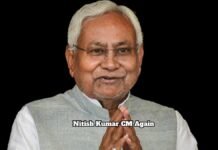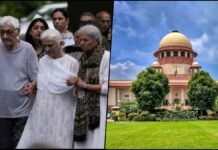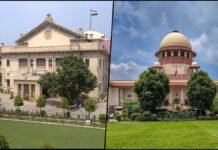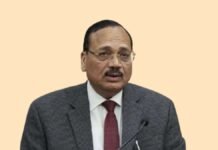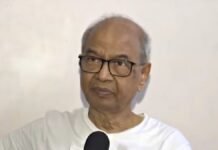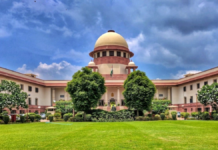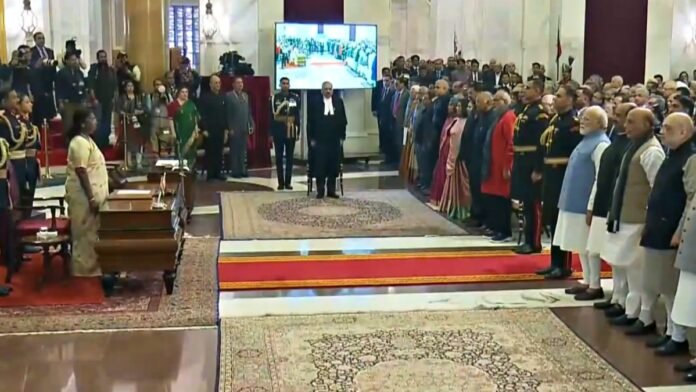
Key Points:
- Justice Surya Kant sworn in as 53rd CJI, succeeding Justice BR Gavai who retired Sunday evening
- President Droupadi Murmu administered oath of office at Rashtrapati Bhavan ceremony
- 15-month tenure until February 9, 2027, focuses on reducing judicial pendency of over 5 crore cases
- International delegation from six countries attended, first such instance in Indian judicial history
- Known for suspending colonial-era sedition law, upholding Article 370 abrogation, and Pegasus spyware case rulings
Justice Surya Kant took oath as the 53rd Chief Justice of India on Monday, November 24, 2025, at Rashtrapati Bhavan, succeeding Justice B.R. Gavai, who demitted office on Sunday evening. President Droupadi Murmu administered the oath of office in a ceremony attended by more than a dozen foreign judges and chief justices from six countries, marking the first time such a large international judicial delegation witnessed an Indian CJI’s swearing-in. The distinguished guests represented Bhutan, Kenya, Malaysia, Mauritius, Nepal, and Sri Lanka, underscoring the diplomatic significance of Justice Kant’s appointment.
From Hisar Lawyer To Supreme Court’s Highest Office
Born on February 10, 1962, in Haryana’s Hisar district to a middle-class family, Justice Kant rose from humble beginnings to the apex of India’s judiciary. He distinguished himself academically, securing ‘first class first’ in his Master’s in Law from Kurukshetra University in 2011. After practising law in Hisar and the Punjab and Haryana High Court, he became Haryana’s youngest Advocate General in 2000 and was designated senior advocate in 2001. He was elevated as a judge of the Punjab and Haryana High Court in January 2004, later serving as Chief Justice of the Himachal Pradesh High Court from October 5, 2018, before his elevation to the Supreme Court in May 2019.
Landmark Constitutional Rulings Define Judicial Legacy
Justice Kant’s Supreme Court tenure has been marked by pivotal constitutional decisions. He was part of the bench that upheld the abrogation of Article 370, removing Jammu and Kashmir’s special status, and effectively suspended the colonial-era sedition law (Section 124A), directing that no new FIRs be registered until the government completes its review. In the Pegasus spyware case, he emphasized that the state cannot claim a “free pass under the guise of national security,” appointing a committee of cyber experts to investigate surveillance allegations. He also nudged the Election Commission to disclose details of 65 lakh voters omitted from Bihar’s draft electoral rolls during the Special Intensive Revision exercise.
Gender Justice And Institutional Reforms
Justice Kant has championed gender equality through groundbreaking rulings. He led a bench that reinstated a woman sarpanch illegally removed from office, citing gender discrimination, and directed that one-third of seats in bar associations, including the Supreme Court Bar Association, be reserved for women. He upheld the constitutional validity of the One Rank, One Pension (OROP) scheme for defence personnel and participated in a seven-judge bench that overturned the 1967 Aligarh Muslim University ruling, allowing reconsideration of the institution’s minority status. He also appointed a panel headed by Justice Indu Malhotra to investigate security lapses during Prime Minister Narendra Modi’s 2022 Punjab visit.
Priorities For 15-Month Tenure
As CJI, Justice Kant has identified reducing judicial pendency as his top priority, with over 5 crore cases burdening courts nationwide. He plans to hold consultations with High Courts to identify challenges in district and subordinate courts and will constitute Constitution Benches of five, seven, and nine judges “in the next few weeks” to address long-pending matters. He emphasises strengthening mediation and alternative dispute resolution mechanisms, including community mediation, to address disputes between states and with the Centre. Since November 2024, he has chaired the Supreme Court Legal Services Committee, demonstrating his commitment to judicial accessibility.

















